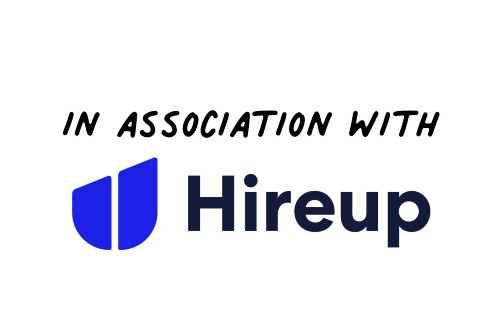
How to get support worker funding in your child’s NDIS plan
by Melanie Dimmitt
When your child has complex needs, it can feel like you’re the only person on the planet who can keep them alive. As someone whose son needs substantial and specialised support to eat, drink, play, take his medications, help with personal care, do his exercises and get out and about, I was gearing up for a lifetime of being glued to his hip, cramping his style.
It wasn’t until Arlo – my now-six-year-old son – was aged four and the NDIS had sufficiently rolled out, that I learned disability support workers were a thing. However, many questions remained. Was Arlo old enough to have a support worker? Could we, as a family, justify our need for one? And if so, how could we get funding for disability support workers included in Arlo’s NDIS plan?
These days Arlo hangs out with his Hireup support worker, Maddy, three or four times a week. Maddy knows her way around Arlo’s wheelchair, stander and walking frame, expertly administers his tube-feeds and medications, and helps him with his therapy exercises. She also knows Arlo’s favourite books, songs, games, and exactly what makes him belly laugh.
Arlo’s NDIS plan now includes core funds specifically for disability support workers – something that, not long ago, I wasn’t sure we would be able to have. So, in the spirit of setting things straight for other families, I’ve asked some other parents and experts in the space how to best express your need for support worker funding at your next NDIS planning meeting. Here’s the advice they shared.
Explain exactly how a disability support worker will help your child achieve their goals
Sandy Goulder, co-founder of disability parent support network Thrive Tribe and Co, tells me that support workers are hard to get funded. “The NDIA doesn’t want you to say words like ‘respite’ even though, as informal supports for our child, we might desperately need a break,” says Sandy, whose daughter Imogen who is autistic.
“We have had funding for support workers because we’ve linked it to a goal for Imogen and a goal for our family. One of our goals for Imogen is to build a strong social network of her own peers and friends, without having to rely on us. That means a support worker can take her into the community, or to social things, and support her in building friendships.
“We also have a goal around sustaining a cohesive family unit, which means that all of our needs are met. I think building these goals into your child’s plan is really important. The goals need to link to their wellbeing, but also the sustaining of their informal supports.”
Get reports from providers who know the level of support your child and family needs
Prior to our planning meeting we asked Arlo’s physio, occupational therapist and speech therapist to write reports – all of which recommended that his plan include funds for disability support workers. Here is an example from one of Arlo’s therapists:
“Arlo’s need for support is greater than expected for other children his age and it is difficult to simultaneously provide for the needs and safety of his younger sister. A support worker will enable improved community access for Arlo as two people are required at all times when taking Arlo and his sister into the community for shopping or leisure such as going to the park.
“Additionally, a support worker at home would be able to provide direct interaction with Arlo to ensure many aspects of his occupational therapy, physiotherapy and speech pathology home program are completed.”
Prepare a detailed, day-to-day schedule of what your kid gets up to
This tip was one I gleaned from Georgia White, whose six-year-old daughter Rosie has a rare genetic condition. Prior to Rosie’s most recent planning meeting, Georgia prepared a word document that detailed – minute by minute – the support her daughter needs from the moment she wakes up and calls out for Mum and Dad.
“I also described the times that she’s waking up through the night,” says Georgia. “How she needs someone to change her nappy and reposition her in bed. In the morning she needs someone to lift her out of bed, take her to the living room, put her in her chair and prepare her breakfast. And take the breakfast to her, feed the breakfast to her, give her her tablets.
“I found it a really good document because there was no escaping what that reality was – it’s written down. This is not what the average family is needing to do in their day. And that gives you the confidence to go into that planning meeting and be able to say that your child needs more support.”
Write a compelling carer’s statement
I didn’t know what a carer’s statement was before chatting with Linda Fenech, mother of seven-year-old Lucy, who has cerebral palsy. “The carer statement is huge,” she told me. “You need to be writing that every single time you have a plan review.”
Also known as an impact statement, a carer statement is a letter written by a parent or carer of someone with a disability that explains how their disability is impacting their own life and the lives of those around them. Writing this statement is not a compulsory part of the planning process, but it can significantly strengthen your case for supports.
In giving her advice on how to write one of these things, Linda says: “Some days you wake up and you go, ‘I’ve got this, I’m all good’. But then on other days you’re tired, you’re exhausted, you wonder why you do this – they’re the days to write your carer statement. Even if your review isn’t for another six months, write your statement on one of those days. The NDIA needs to see the emotion in our words.”
You can gather more advice about how to get the best NDIS plan for your kid on Melanie Dimmitt’s NDIS Know-how podcast. Ready to find, hire and manage top-notch support workers for your child? Head to Hireup.









